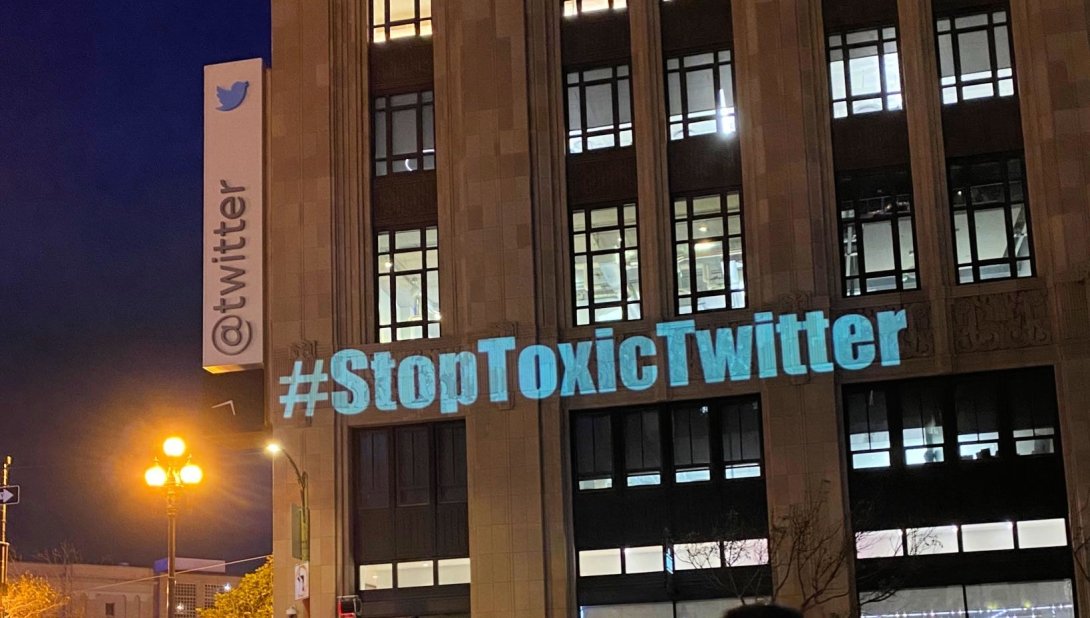Fighting Musk in the Media

AE Marling
In the past week, Free Press has received more than 1,600 press hits for our campaign against Elon Musk’s takeover of Twitter.
If we’ve learned anything since Musk first hinted that he wanted to buy the social network, it’s that the media have an Elon obsession.
Sure, he’s the richest man in the world and wealthy people get press. But the more troubling story is about an erratic and reckless attention-seeker taking over one of the world’s most influential media platforms; Musk just doesn’t seem capable of taking his responsibilities seriously.
In telling this perilous tale, Free Press staffers have been quoted in almost every major news outlet, from the Associated Press to The Washington Post, in tech reporting from Bloomberg to Wired, and in live interviews on CBS, NBC, NPR and elsewhere.
Why so much interest in our take on Musk?
Laying the groundwork
First, we’ve been going head-to-head with powerful media owners for decades. Free Press’ platform-accountability team has devoted the past four years to making massive tech platforms take more responsibility for the damage they do when they spread disinformation and bigotry across their networks. In the spring, we launched the Fix the Feed campaign with dozens of allies to demand that the largest social-media platforms, including Twitter, adopt a set of safety protocols to minimize the worst content in advance of the 2022 midterms.
This work came to a head with the release two weeks ago of our report Empty Promises, which assesses the readiness of Meta, TikTok, Twitter and YouTube to curb the spread of election disinformation and extremism. Our research found that Twitter is among the worst offenders — and these problems existed well before Musk took the helm in San Francisco.
But his actions in the past week — including laying off half of the company’s staff, attacking activists and retweeting conspiracy theorists and Hitler devotees — have only made matters worse.
Last week, Free Press Co-CEO Jessica J. González and other leaders of civil-rights and civil-society groups met with Musk and extracted his pledge to:
- refrain from reinstating anyone kicked off Twitter for violating its trust and safety rules back before Tuesday’s midterm elections;
- enforce election-integrity measures and content-moderation policies already on the books at Twitter; and
- consult with civil- and human-rights experts as he develops new community standards
“He agreed to all of those things in our meeting, but actions speak louder than words,” González told the Associated Press. “I’ve had a lot of meetings with tech CEOs. And I’ve [heard] a lot of empty promises. And with Elon Musk in particular, he’s shown himself to be inconsistent, saying one thing one day and another thing the next.”
Earlier in the week, Free Press and more than 60 civil-society groups launched the #StopToxicTwitter campaign, which is calling on Twitter’s top advertisers to suspend all advertising on the platform if Musk continues to undermine the social network’s community standards and content moderation. González told NBC that we are especially concerned about Twitter’s failure to filter disinformation prior to the midterm elections — a time “when we know social media goes off the rails to misinform, intimidate and harm voters of color.”
By pulling their ads from Twitter, González added, “these companies can stop their advertising from fueling intimidation, violence and pain.”
Musk blinks
By Friday, it became clear that Musk wasn’t serious about honoring his pledge to civil-rights groups. In sweeping layoffs, Twitter fired more than half of its staff, gutting teams dedicated to combating election misinformation, protecting human rights, moderating hateful conduct and enforcing ethical guidelines for artificial intelligence — all just days before Tuesday’s midterm election.
Meanwhile, Musk tweeted that Twitter “has had a massive drop in revenue, due to activist groups pressuring advertisers.” He added that because of our activities we were “trying to destroy free speech in America.”
“Musk has taken extreme actions when he dislikes what people say,” Nora Benavidez, Free Press’ senior counsel and director of civil rights and digital justice, told Amy Goodman Monday on Democracy Now!. “What we have seen over the last week since he actually took Twitter private has been very disturbing.”
“He’s not an everyday person,” Benavidez said. “He has a massive following. And to see someone like that with such notability — and many people who feel he has credibility — be a superspreader of misinformation and conspiracy is deeply troubling… We’ve really thought long and hard: How do we somehow catalyze accountability? How do we take some type of action to change things?”
Free Press and others launched the #StopToxicTwitter campaign to do just that, demanding that all Twitter advertisers pause global ad buys on the platform, full stop. “We’re escalating our campaign … in response to Musk’s failure to uphold his commitment to take the measures that would prevent Twitter from becoming a superspreader of racism, antisemitism, misogyny and disenfranchisement,” González said during a press conference attended by dozens of reporters.
As of Monday, more than 20 companies have stopped advertising on Twitter, including Audi, General Mills, General Motors, L’Oréal, Mondelez, Pfizer and Volkswagen.
As Benavidez wrote in Empty Promises, “platforms’ promises of improvement amount to little more than public-relations exercises in a dysfunctional system where changes to policies can’t be checked comprehensively for accuracy and real-world impact.”
With the elections now upon us — and major social-media platforms continuing to fall down on the job — we’re tracking the rampant spread of disinformation, documenting other platform failures and reaching out to the media, allies and our activists to hold Big Tech to account.
Stay tuned.